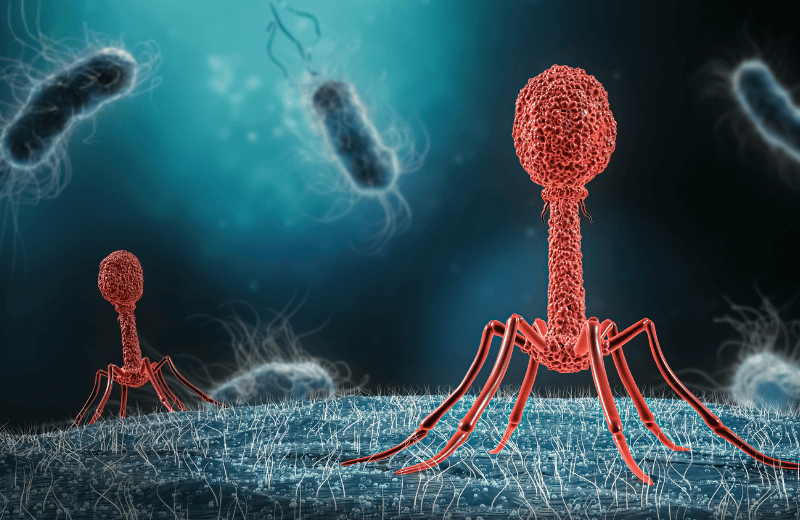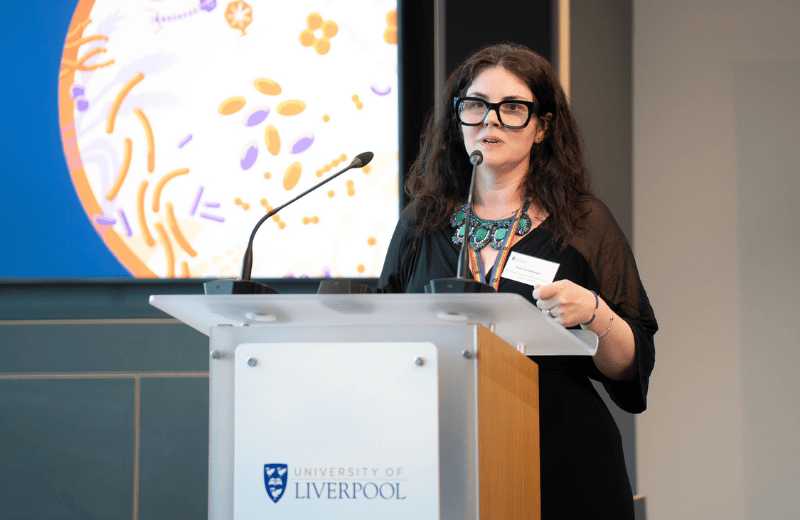Leading the way in microbiome innovation
The Liverpool City Region is set to become a global leader in translating cutting-edge microbiome research into real-world commercial, health and wellbeing impact. Supported by over £1 million from the Life Sciences Innovation Zone, the Microbiome: Accelerating Innovation and Development (MAID) Hub harnesses the University’s world-leading expertise, facilities and networks to support microbiome innovators as they develop and commercialise their innovations.
Microbiomes are communities of microorganisms - such as bacteria, fungi, and viruses - that live on and inside humans, animals, plants and the environment. They play crucial roles in a range of markets and applications, including human health and wellbeing, sustainable manufacturing processes, and agricultural production.
MAID, led by the University’s Microbiome Innovation Centre and delivered in partnership with technology innovation centre CPI, provides end-to-end support to 60 innovative businesses, including access to labs, experimental design, scientific consultancy, and regulatory and commercial guidance. By turning discoveries into real-world impact, the hub positions Liverpool as a thriving centre for microbiome innovation.

The hub has already built an active community of local companies, attracting new businesses to locate in the region to benefit from its support. It also contributes to national initiatives such as the BBSRC-funded Microbiome-Net, helping the UK translate world-leading research into therapies and solutions with both local and global benefits.
What’s next?
Building on the success of the MAID Hub and the clear market potential of microbiome innovation, the Microbiome Innovation Centre’s long-term vision is to establish a national £30 million Microbiome Centre of Excellence where innovators can access a range of platforms to advance microbiome innovation, including:
- Multi-omics
Integration of diverse biological data to reveal how microbes function and interact, enabling the development of precise and effective microbiome-based solutions.
- Complex microbiological models
Accurate simulation of microbial communities and their environments, allowing for better understanding and testing of interventions before real-world application.
- Data science
Analysis of large, complex datasets to identify patterns and insights that accelerate discovery and optimise microbiome-based solutions.
- Biobanking
Provision of well-preserved, high-quality microbial samples for research, enabling consistent study and development of new therapies and products.
- Manufacturing
Exploration of establishing a Good Manufacturing Practice (GMP) facility for Live Biotherapeutic Products (LBPs) in the region.
The Centre will also provide extensive training and a commercial concierge service to guide microbiome innovators, helping them access the expertise they need - whether in regulatory affairs, fundraising, marketing, or other areas.
By leveraging key regional assets and businesses, the Centre will foster collaboration across sectors to drive innovation and economic growth. This programme builds on the longstanding, mutually beneficial partnership between the University of Liverpool and Unilever, serving as a strong endorsement to attract other businesses.

I’m proud of the work we’re doing with multiple partners to position the region as a hub for life sciences innovation. By supporting microbiome research, helping companies scale, and turning discoveries into realworld solutions, we’re putting the region on the global map for microbiome science while creating opportunities, driving growth, and improving health outcomes locally and internationally.
Professor Jo Fothergill, Director, Microbiome Innovation Centre
Get involved
Businesses and innovators in microbiome and infectious disease are invited to work with MAID to advance therapies, develop new antimicrobials, and boost Liverpool’s global life sciences profile.